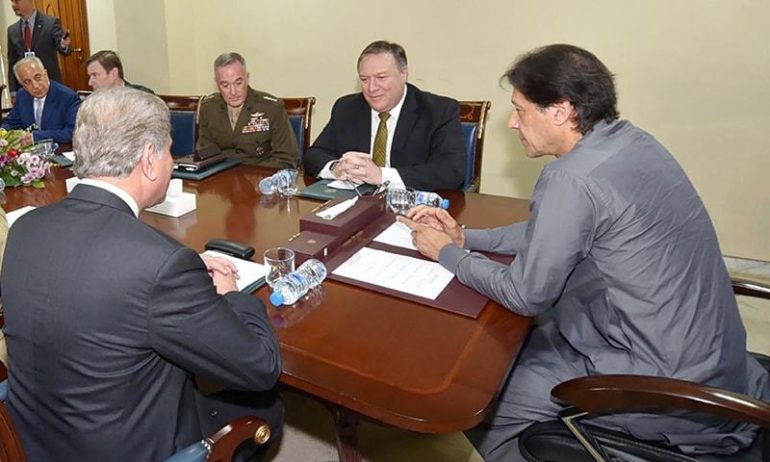The United States on Sunday criticized Pakistan for using discriminatory policies against Ahmadiyya community and other religious minorities including Sikhs, Christians, and Shias.
A country report on human rights practices for 2018, released by the US Department of State, last week, says:
“Courts routinely failed to protect the rights of religious minorities. Courts discriminatorily used laws prohibiting blasphemy against Shia, Christians, Ahmadis, and members of other religious minority groups.”
“Lower courts often did not require adequate evidence in blasphemy cases, and some convicted persons spent years in jail before higher courts eventually overturned their convictions or ordered their release,” adds the report.
The report stated that Pakistan had excluded the Ahmadiyya community from participating in the 25th general elections of the country, held in July last year, by creating a separate voter list for the minority community.
“The government requires voters to indicate their religion when registering to vote and requires Ahmadis to declare themselves as non-Muslims. Ahmadis consider themselves Muslims, and many were unable to vote because they did not comply,” the report says.
“Authorities generally prohibited Ahmadis, a religious minority, from holding conferences or gatherings. Ahmadis cited the closure by Sialkot authorities of an Ahmadiyya mosque on May 14 and mob attacks on two other mosques in Sialkot and Faisalabad as evidence of the ongoing severe conditions for the community,” the State Department adds in its reports.
Rabwah, Pakistan’s Punjab province, is one of the few places in Pakistan which has the highest concentration of Ahmadis in the country.
The Ahmadiyya or the Ahmadiyya Muslim Jama’at is an Islamic religious movement founded in Punjab, in the then British India, near the end of the 19th century. However, Pakistan’s Constitution has declared the community as “non-Muslims.”


